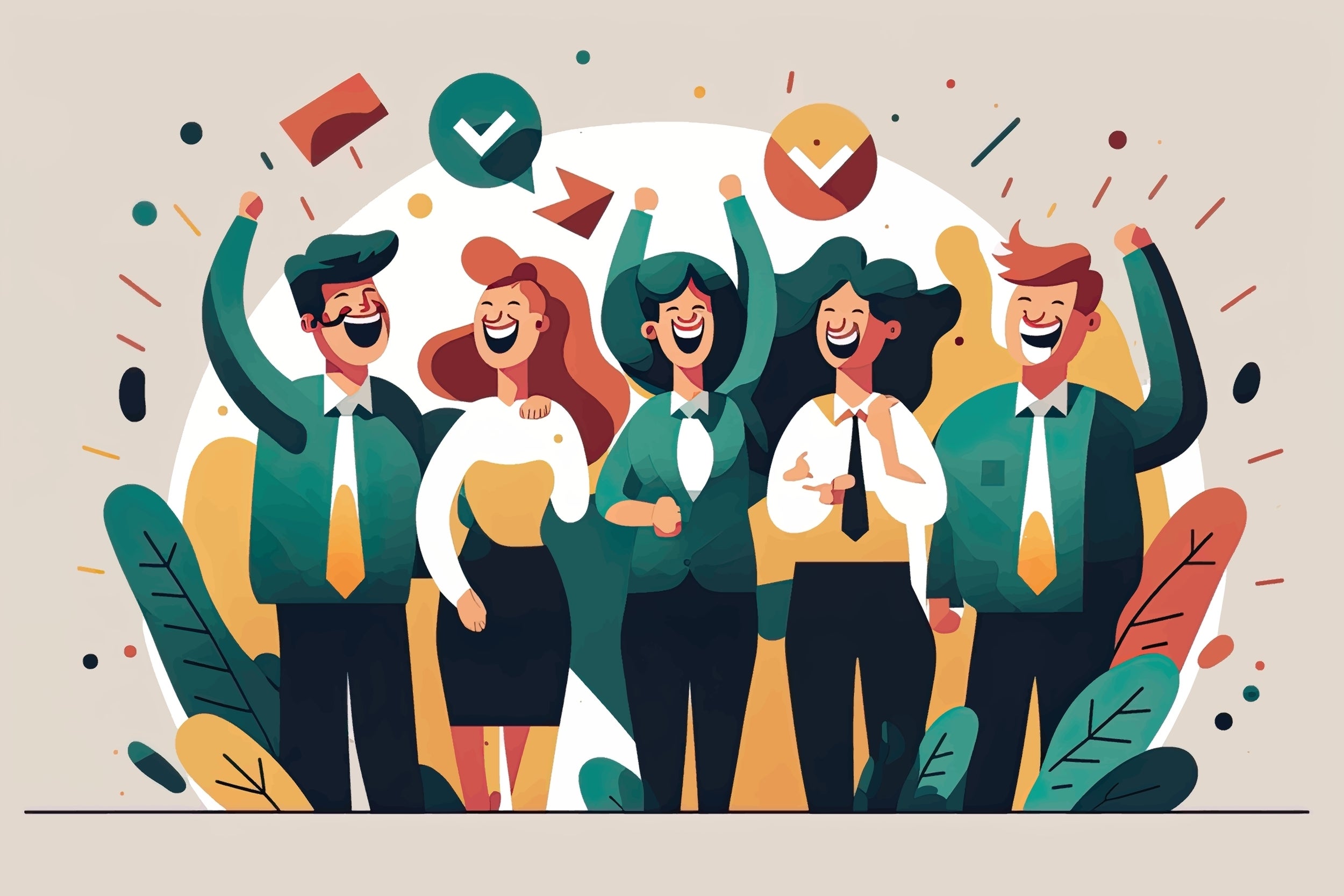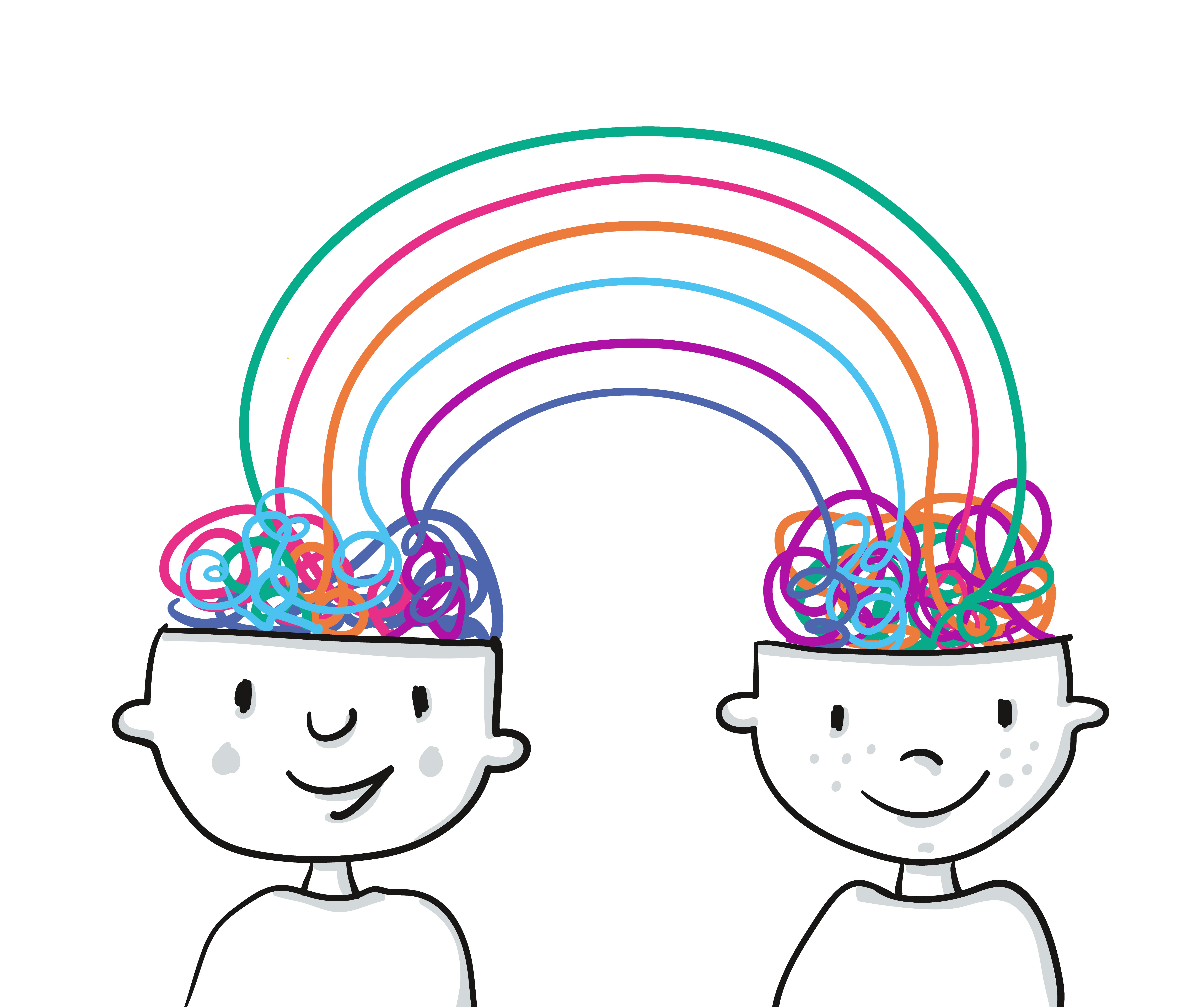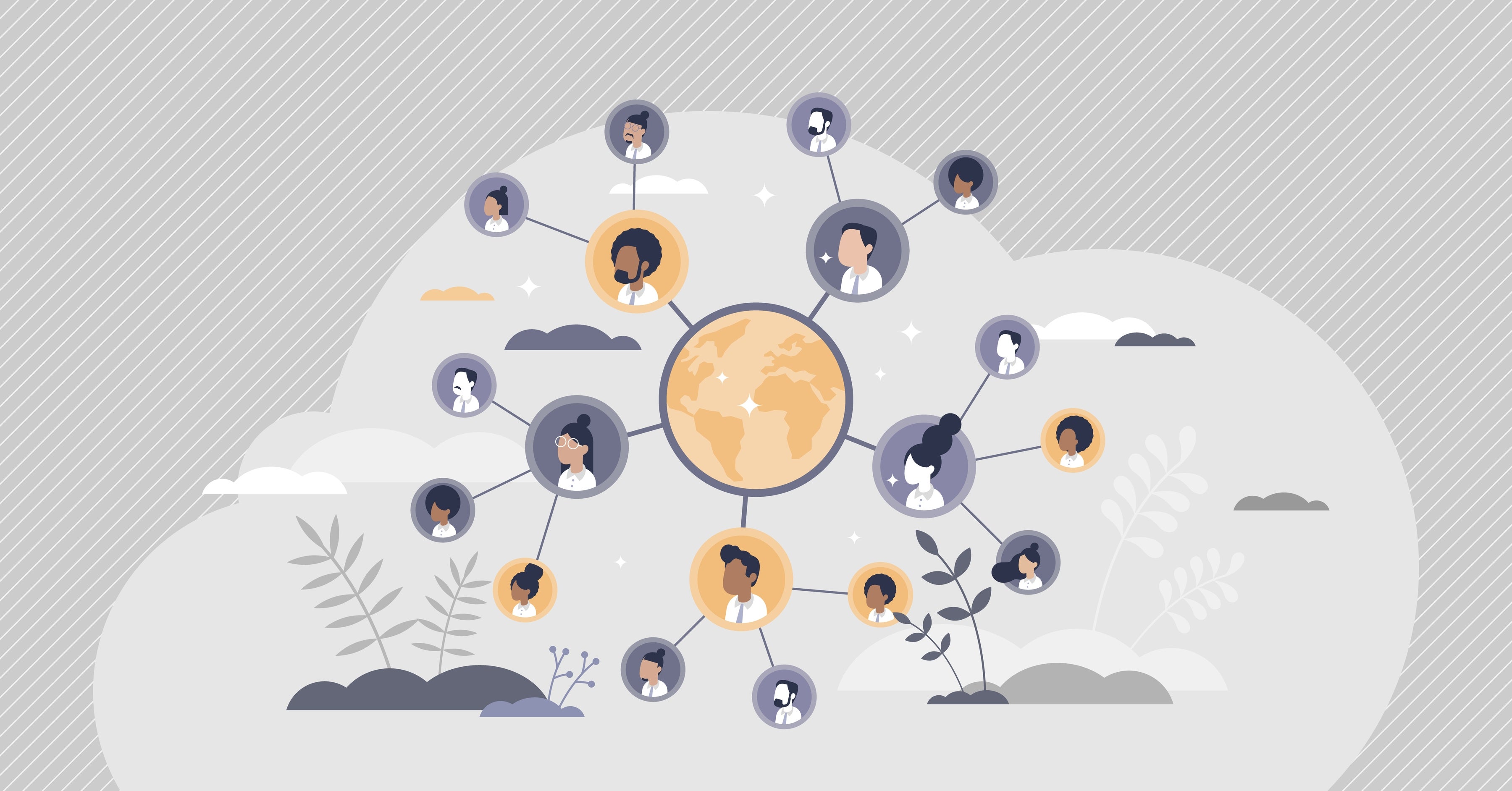Banner artwork by Net Vector / Shutterstock.com
The 2023 Australian F1 Grand Prix was as full of drama as any episode of Drive to Survive. As it drew to a close, it reminded me that we often read articles about what F1 can teach us about teamwork, productivity, and coming out on top, but not as much about the humanistic lessons we can apply to our often drama filled careers in-house.
As in-house lawyers, we are leaders and team members in our organizations, and we often need to juggle how to best work with others against how to manage the perceived successes and failures of our long-term careers.
I have gleaned the following lessons from F1.They can teach us a lot about leading with positivity and a human-centered focus, working on self-reflection and consistent growth, and cultivating luck in our lives.
Focus on the positive and the human
Christian Horner, Red Bull’s team principal and winner of six drivers and five constructors’ championships, told Red Bull’s podcast Mind Set Win, in March 2023, how he focuses on positivity for success:
- “You want to portray a positive energy. People feed off an energy and I think as a team leader it is hugely important in how you carry yourself that you transmit that sense of positivity. By creating a positive energy that just permeates through an organization.”
- “Enjoy the moment, bank it, and move on,” i.e., look to the next season. “If you enjoy what you do you will just do it that much better. It is not just about it being a job.”
- “It is important than the celebrate success, but you will not win every race … so to embrace and enjoy that moment … and to hold onto that feeling so you remember what that feeling is like. So, on the bad days and on the tough days you remember you are aspiring to get back to that winning feeling.” Celebrate the moment and achievement so you can continue with high energy and motivation.

Positive emotions are something we should aim to foster in our teams and our interactions with all of our stakeholders at work. Social psychologist Dr. Barbara Fredrickson says, “Through experiences of positive emotions people transform themselves, becoming more creative, knowledgeable, resilient, socially integrated, and healthy individuals.”
Fredrickson says positive emotions are contagious: “Positive emotions produce organizational transformation because each person's emotions reverberate through other organizational members. In part, this is because emotions are contagious. Experimental studies have shown that one person's expression of positive emotion, through processes of facial mimicry, can produce experiences of positive emotion in those with whom they interact. Perhaps because they communicate to a broad range of individuals, organizational leaders' positive emotions are especially contagious. Studies have shown, for instance, that a leader's positive emotions predict the performance of their entire group.” (For more on how to cultivate positive emotions and learn about Friedrickson’s work on positive emotions, see my earlier article.)

Mercedes team principal Toto Wolff (winner of eight constructors’ championships and seven drivers’ championships) often shares his thoughts on the mechanics of leading a team, but a recent Harvard Business Review article included some practical tips on the importance of bringing human-centered focus to our teams and roles.
Put people front and center
Wolff says that he does not run racing cars, “I run people that run racing cars … each person in the organization has hopes, dreams, fears, and anxieties. It is important for me to understand what those are — to learn what drives a person.”
He continues, “I don’t know as much about aerodynamics as the engineers on the team do … but I want to know about them as people, and I enjoy spending time with them, which makes it easier to figure out the best course of action in tough situations.” The effort he makes to build rapport with his team members benefits all parties.
As in-house lawyers we do not always have the same technical expertise as our stakeholders and clients, but we can focus on engaging with our stakeholders as people by taking a real interest in them as people which will reflect itself in positive relationships which translate into working well together and coming up with solutions, particularly during stressful projects.
Foster an open, no-blame culture
“When someone makes a mistake in your company,” Wolff says, “The natural thing … is to say, ‘It’s his fault.’ But as a leader you have to fight that instinct and ask yourself, ‘How could that happen? Have we not provided the right tools, or the right training, or put the right people in the right place?’”
He fosters a culture of openness by admitting to his own mistakes and says, “When they make a mistake, I want our people to know they don’t need to lie in order to retain their jobs,” Wolff says. “I want the organization to be one in which people feel safe speaking up. We live by the mantra see it, say it, fix it.” Fostering a no-blame culture should be at the heart of every legal team.

Junior team members should always know their senior team members will support them even if they make a mistake and in-house lawyers can model this behavior in wider organizational meetings with stakeholders to ensure people discuss any issues and mistakes and find a solution for them quickly.
Create a space that allows individuals to perform at their best
Wolff was well known to unusually accommodate Lewis Hamilton’s other passions outside of F1, which took up a lot of his time and focus, and trust that this would allow Hamilton to perform at his best. Wolff considered it to be a matter of mutual respect: “We have a pact. The idea is, ‘You perform, and I create a framework for you that allows you to perform.’ He knows what is good for him — I trust him on that.”
Not every team member is the same. Some work best if they have exercised in the morning while others will shine if they can work from home and take a break at lunchtime to play with kids or pets.
Everyone is different and knowing what helps each individual work at their best is a crucial part of any leadership within teams. It equally works across the business when understanding and respecting the needs of stakeholders and other business team members which may not be aligned to your own but may help that person work at their best. How do we know what makes people perform at their best? We should ask them. Having a positive communication within your team and across your projects explaining what makes you perform at your best and asking about others will go a long way to ensuring everyone can bring their best self to work.
Learn healthy self- reflection, introspection, and growth
Australian driver Daniel Ricciardo is well known for his wide smile and good humor. Having been paid to leave McLaren in 2022 he has returned to Red Bull as their “third driver,” a move that many think is the end of his career. But he disagrees (as he should)! Instead, he considers it to be “a year to reset,” having told Channel 10 during the recent Australian Grand Prix “after a bit of time off, I will be a good version of myself to be back.”
Active in media and on LinkedIn as Optus’ Chief Optimism Officer, Ricciardo has a lot to teach in-house lawyers, from how to focus on values and humor in tougher times to how to pivot a career and reset when we think something we have tried has not quite worked and convention says our career trajectories will suffer.
- Cultivate a healthy self-reflection.
- Grow from the tough times. While losses can be disheartening and frustrating, he asks himself: “What are the areas I can improve? And what do I need to do right now?” He says the difficult days help him to remember how strongly he appreciates the sport.
- Celebrate the wins. “I believe it’s important to embrace and recognize my achievements,” he says, acknowledging that winning doesn’t come every day.

Prepare for the future
A habit of self-reflection leads to better performance. “By looking back on my progress, I notice things that I may not otherwise remember. This helps me develop and prepare for future races.”
Our careers are long, and, these days, varied. They no longer need to conform to a linear conventional path, but we could do well to self-reflect regularly, alone, and within our teams — to celebrate our achievements but also to learn and grow from challenges.
Staying positive is about perspective
When I’m feeling down, I ask myself, “What’s the reality of the situation here and what’s really important?” I then try to reflect on what’s good in my life — I’ve got my health, I’ve got my friends, and my family. Then bang. It can really help me to quickly switch me out of a negative mindset and put me back into a positive place.”
Lawyers are often tired, stressed, and overwhelmed. This can lead to a lack of perspective. By taking a step back during times when we are feeling tired or down we can reframe our situation.

Stay present and live in the moment
“I think it’s really important to recognize and be aware of where you are today and try to enjoy that. Find the little things that you enjoy about today. Not always wishing time away and look forward too much. It’s important to appreciate the here and now.”
Similarly, our desire to keep our career trajectories moving and get to the next promotion, the next pay rise, and the next project sometimes stops us from living in the moment and being grateful for what we have today.
Never stop learning from others
“No matter how long you’ve been in your business, you can never stop learning from others. You just have to be open to new experiences, conversations with new people, and know that every day presents an opportunity for growth if you’re looking for it.”
In-house lawyers often overlook the luck we have to learn from others in our own organizations who may have very different experiences and expertise from our own. We should be open to new experiences if opportunities present themselves to work in areas outside of our comfort zones and learn from others.
Seek inspiration
“Take note of the people you meet and the lessons you learn along the way, we’re always discovering new things in moments we might not expect. Which is why it’s important not to get discouraged, if you’re not where you thought you’d be at a certain point. Keep moving forward toward your goal and track your progress along the way. You’ll be surprised how much farther you’ve come than you may feel and if you start to see results, it’s hard not to keep going.”
In-house lawyers may often feel isolated within their organizations. However, there are networks and communities you can join, both within and outside the legal industry, to meet new people who may be on a similar current journey or have had a similar past experience — both of which can be useful.

Cultivate luck as part of your career journey
Ricciardo’s replacement at McLaren, fellow Australian Oscar Piastri, scored his first points thanks to Ferrari’s Carlos Sainz receiving a five second penalty at the very end of the race. What is the lesson here? Work hard and accept that sometimes luck can play an unexpected role in your career. While luck is sometimes unexpected, can we help create our own luck in our careers?
Richard Wiseman (Professor of the Public Understanding of Psychology in the United Kingdom) thinks his research showed that outcomes may not be the chance luck we think they are. His book, The Luck Factor, suggests there are four key differences between lucky and unlucky people.
- Lucky people constantly encounter opportunities which unlucky people do not;
- Lucky people make a good decision without truly understanding why while unlucky people tend to make more wrong decisions that ended with failure;
- Lucky people’s dreams are able to come true in an uncanny way whereas unlucky people usually fail to achieve their dreams; and
- Lucky people have the ability to turn bad luck into good luck, but for unlucky people, their luck seems to remain the same.
Wiseman suggests the following characteristics lucky people have which we can try to follow.
Characteristics of lucky people
- Build and maintain a strong “network of luck.” They have strong networks and are open to new experiences.
- Believe and listen to their gut feelings. He suggests you can learn how to boost your intuition by assessing how well it has paid off and by learning from your previous experiences.
- Expect to meet good fortune and are ready when opportunities arise.
- Believe that bad luck or problems are for the best in the long run and learn from them.
As lawyers we can often be so focused, we literally can’t see anything outside of what we are doing. We lose our sense of peripheral vision and with it we cannot see opportunities around us. If we try to work on building and maintaining our networks (even when we feel too busy), following our instincts to do work in areas we enjoy and work on actively resting and destressing, we will have enough fuel in the tank to notice, or even create, our own opportunities and cultivate a career where we always feel like winners.




